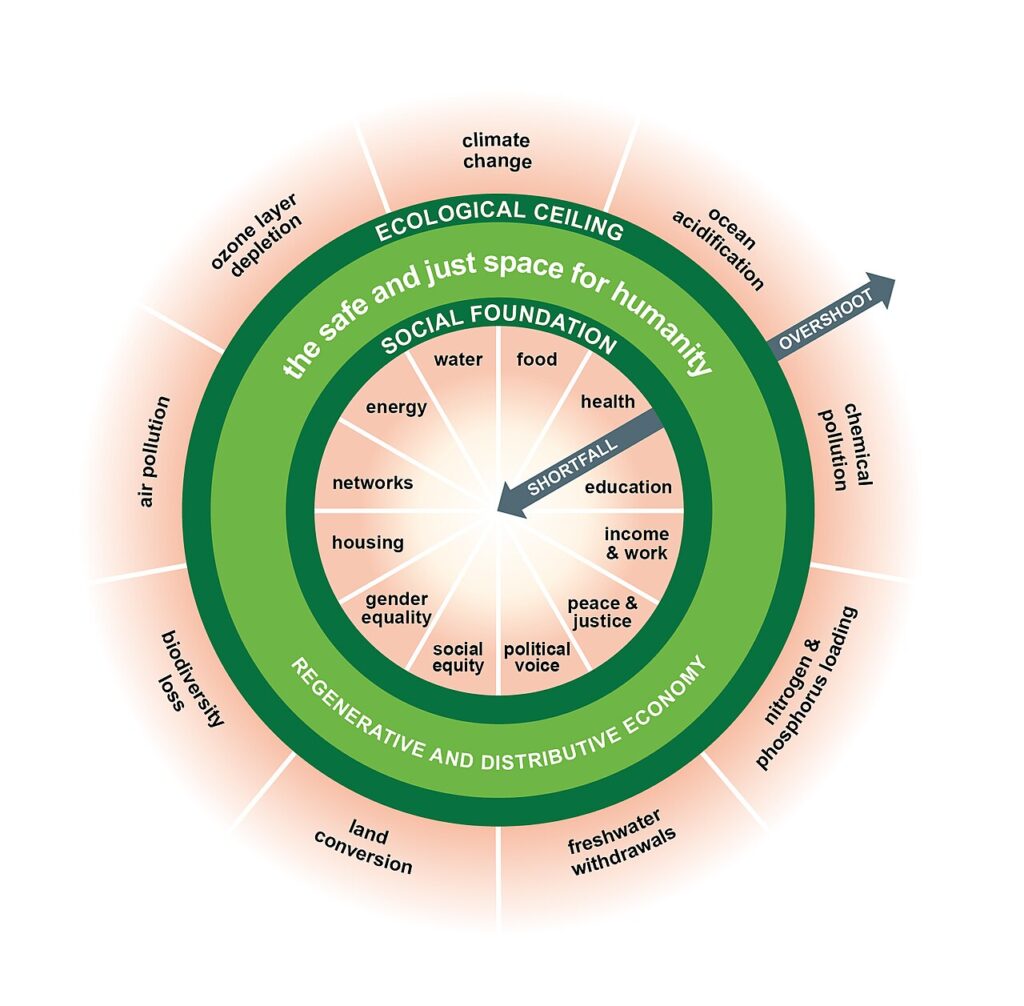Every year, institutions release their trend reports. Recently, the World Economic Forum identified four different environmental issues as the most significant risks facing the world in the next 10 years. The UNDP Trends Report cites four climate-related trends in its top 13 themes. However, we know climate change is not merely a future trend, we are already feeling the damaging effects of climate change. February 2024 was globally the warmest on record.
The Scanning the Horizon Community, hosted by the International Civil Society Centre, investigates trends and signals affecting civil society and looks to apply this learning and approach to Civil Society Organisations. At the start of the year, the Scanning Community met to examine and explore those areas where digital technology and the environment converge.
We delved into a thought-provoking workshop to understand the intricate relationship between digital technologies and sustainability. Taking the Doughnut Economic Model – a framework, developed by Kate Raworth, that challenges traditional notions of economic success and sustainability, – we were able to use the ‘Digital Doughnut’, a visual tool that helped us explore the nuances of our digital footprint.
The Doughnut Economic Model offers a holistic approach to sustainable development. It visualises a “safe and just space for humanity,” represented by the area between the inner and outer rings of the doughnut. The inner ring denotes the minimum standards of well-being that every person should have access to, as outlined by the UN Sustainable Development Goals. Meanwhile, the outer ring represents the planetary boundaries we must not exceed to safeguard the health of our planet.

This model prompts us to consider not only the immediate impacts of our actions but also their long-term consequences on both people and the planet. By framing sustainability within this broader context, we are compelled to think beyond mere environmental conservation and examine the systemic issues at play.
The intersection of technology and sustainability is a pressing issue in today’s world. While technological advancements offer huge benefits, they also pose significant challenges to our environment and society. From the proliferation of electronic waste to the energy-intensive nature of digital infrastructure, the digital sector has a substantial ecological footprint. We do not always think about the physical and environmental infrastructure of digital technology. Cloud technology, for example, requires a significant amount of energy and waste. A Google data centre uses 450,000 litres of water per day. Training a single AI model can emit as much carbon as five cars in their lifetimes. There is often a hidden environmental cost to all this new technology.
The ‘Digital Doughnut’ takes the doughnut economy and uses the model to assess digital technologies. During our workshop, led by Alistair Alexander, participants examined the global impact of digital technologies and their implications for planetary health. We explored pressing topics like disinformation, e-waste, and energy consumption, shedding light on the multifaceted challenges we face.
In an era defined by rapid technological advancement and growing environmental concerns, the need for a more sustainable approach to digital development has never been greater. When we talk about sustainability in the tech realm, it is easy to focus solely on surface-level solutions like renewable energy and recycling. While these are crucial steps, we must not lose sight of the deeper questions. What are the underlying paradigms and systems driving climate change? How is digital technology contributing to this crisis and what fundamental changes are needed?
You can find out more about the Digital Doughnut here: https://doughnuteconomics.org/ and here: https://reclaimed.systems/The-Digital-Doughnut or contact Alistair directly.
At the heart of our efforts with Scanning the Horizon is collaboration with our members and partners to bolster future literacy within the sector. We are actively engaged in charting and anticipating emerging trends.
Our Scanning the Horizon Community unites professionals from diverse sectors to share knowledge, and expertise, and test novel methodologies. Please email us if your organisation is interested in gaining more insight into our community as part of its foresight work. We look forward to hearing from you.





